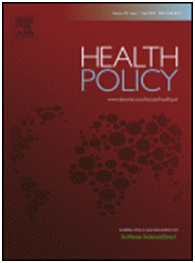Medical tourism: a review of the literature and analysis of a role for bi-lateral trade

OBJECTIVES:With increasing globalization, many countries are considering opening their health systems to greater cross-border movement of patients. This is usually done from the viewpoint of a multi-lateral trade relationship. This paper considers the issues that arise from this debate from a bi-lateral perspective. METHODS:A systematic literature review was carried out on 'Medical Tourism' from the perspective of a bi-lateral trade relationship, using the UK and India as a case study. RESULTS:There is a dearth of data and discussion on such bi-lateral trade. This limited evidence offers some suggestions. Exporting countries may benefit from medical tourism by generating foreign exchange and reversing the brain drain, but run the risk of creating a dual system, where the local population is crowded out. Importing countries can benefit from alleviating waiting lists and lowering healthcare costs, but may risk quality of care and legal liability. However, evidence from a bi-lateral perspective suggests that the positive aspects can be capitalised, and the negative ones reduced. CONCLUSIONS:The key recommendations from this paper are for more evidence to be collected at the country and international level, and for countries to consider trade in health services from a bi-lateral rather than multi-lateral perspective.
Medical tourism: a review of the literature and analysis of a role for bi-lateral trade

OBJECTIVES:With increasing globalization, many countries are considering opening their health systems to greater cross-border movement of patients. This is usually done from the viewpoint of a multi-lateral trade relationship. This paper considers the issues that arise from this debate from a bi-lateral perspective. METHODS:A systematic literature review was carried out on 'Medical Tourism' from the perspective of a bi-lateral trade relationship, using the UK and India as a case study. RESULTS:There is a dearth of data and discussion on such bi-lateral trade. This limited evidence offers some suggestions. Exporting countries may benefit from medical tourism by generating foreign exchange and reversing the brain drain, but run the risk of creating a dual system, where the local population is crowded out. Importing countries can benefit from alleviating waiting lists and lowering healthcare costs, but may risk quality of care and legal liability. However, evidence from a bi-lateral perspective suggests that the positive aspects can be capitalised, and the negative ones reduced. CONCLUSIONS:The key recommendations from this paper are for more evidence to be collected at the country and international level, and for countries to consider trade in health services from a bi-lateral rather than multi-lateral perspective.
